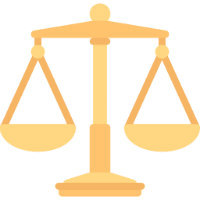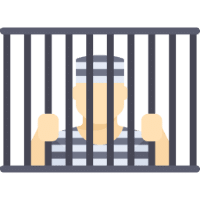A GUIDE TO GEORGIA DRUG LAWS
 Author: Joseph A. Conoscienti, Partner, Conoscienti & Ledbetter
Author: Joseph A. Conoscienti, Partner, Conoscienti & Ledbetter
Mr. Conoscienti specializes in criminal law but likewise has experience in general civil trial practice. Joseph Conoscienti is a part-time Associate Judge for the Municipality of Avonndale Estates, Georgia. Published on March 30, 2018, last updated on June 11, 2019.
DRUG LAWS GEORGIA
The Definitive Guide
Stay informed about Georgia drug laws: a comprehensive guide to penalties, legal updates, and advice for navigating Georgia’s drug regulations.
This is a free, public resource developed by Conoscienti & Ledbetter, drug lawyers in Atlanta GA. Attorney Joseph A. Conoscienti possesses over 30 years of proven experience defending clients against drug charges in Georgia.

CONTENTS
Drug Laws Georgia
The State of Georgia divides drug charges into five categories: purchase, possession, manufacture, distribution, and sale.
- Anyone caught with illegal substances may be charged with Drug Possession.
- Intent to Distribute charges apply if a person possesses more than a certain quantity of a drug or there are other indications of distribution activities.
- Drug Trafficking charges are based upon the sale, manufacture, delivery, or possession of prohibited quantities of specified drugs. Penalties are graduated based on the quantity and type of drug involved.
- The production draws a specific charge for drug distribution.
Controlled Substance charges focus on drugs and narcotics categorized by the government as addictive; possession of one of these substances without the proper prescription leads to a controlled substance charge. To help you understand the nuances of these charges, we recommend speaking with our law firm for free. The law firm of Conoscienti & Ledbetter also provides detailed information on aggravated assault laws in Georgia.
Georgia uses a scheduling system to identify the severity of drugs.
- Schedule I represents drugs with no accepted medical use but a high potential for abuse.
- Schedule II includes drugs with accepted medical uses (most often for pain management) under severe restriction, which still possess a high potential for abuse and psychological or physical dependence.
- Schedule III drugs cover drugs with accepted medical uses with a lower chance of abuse and low to moderate potential for dependence.
- Schedule IV drugs mark another layer of drugs with accepted medical uses and a lower chance of abuse with limited potential for dependence.
- Schedule V captures the rest of the drugs accepted for medical use but with the lowest potential for abuse and dependence.
For those facing drug charges, one of their first calls should include an Atlanta drug attorney experienced in dealing with offenses related to drugs, possession of a controlled substance, or anabolic steroids. Given the emphasis put on drug crimes, representation by well-respected Atlanta lawyers can be essential to protect charged individuals. From confirming evidence collection follows legal rules to keeping up with motions that might limit their client’s rights, the attorney’s work is best done from the earliest stages.
VIOLATION OF THE GEORGIA CONTROLLED SUBSTANCES ACT
The Georgia Controlled Substances Act (GCSA) details the specifications and penalties for drug charges in the State of Georgia. With few exceptions, most controlled substance charges are classified as felonies. Penalties for all felonies under the act start with at least a year of incarceration. If you have been charged with a drug-related offense, you need to consult with an attorney following the drug possession arrest.
An attorney’s knowledge of the GCSA provides one benefit, but another involves their knowledge of the judges and the stance of the particular jurisdiction, and the local interpretation of the GCSA. While the law sets the penalties permitted, each jurisdiction develops a track record based on the judges. The attorney’s experience with each judge allows them to craft their defense to the specific judge, including coaching their clients on what should and should not be said while in court.
Defenses to VGCSA
VGCSA stands for Violation of Georgia Controlled Substances Act. The term refers to charges based on the Georgia Controlled Substances Act. While this term indicates a violation, specific charges should detail the exact nature of the controlled substance violation.
A Violation of the Georgia Controlled Substances Act can be defended in several ways. Being innocent provides an obvious option, especially if a prescription can be produced, but evidence may prompt other defense tactics. Evaluation of search procedures may provide evidence of an illegal search. Sharing space with another person lends credibility to it being another person’s controlled substance.
An attorney develops the defense strategy based on the available evidence.
Joseph Conoscienti has always been a fighter. In the United States Air Force, Mr. Conoscienti achieved the rank of Sergeant. It’s with the same grit and determination that he takes into the courtroom defending clients against drug laws in Georgia.


Joseph Conoscienti has always been a fighter. In the United States Air Force, Mr. Conoscienti achieved the rank of Sergeant. It’s with the same grit and determination that he takes into the courtroom defending clients against drug laws in Georgia.
OFFICIAL CODE OF GEORGIA 16-13-30
OCGA 16-13-30 references the section of the Georgia Code of Laws detailing the specifics related to marijuana. This section comes from the Georgia Controlled Substances Act. The topics covered range from possession with intent to distribute to sale and distribution to manufacturing. Under this portion of the legal code, penalties include jail time and fines and can include mandatory minimums.
Penalties under OCGA 16-13-30 depend upon the amount of marijuana possessed.
-
Misdemeanor Possession involves less than 1 oz of marijuana and carries a penalty of 1 year in jail and a $1,000 fine.
-
Felony Possession involves more than 1 oz but less than 10 lbs and carries a penalty of 1-10 years in jail.
Sale or trafficking charges begin when a person has 10 lbs or more in their possession and are all felonies.
-
The sale or trafficking of 10 to 2,000 lbs carries a penalty of 5 years in jail and a mandatory fine of $100,000.
-
Sale or trafficking of 2,000 to 10,000 lbs carries penalties of 7 years in jail and a mandatory fine of $250,000.
-
The sale or trafficking of 10,000 lbs or more carries a penalty of 15 years in jail and a mandatory fine of $1,000,000.

Georgia Drug Penalties
Georgia penalties related to drug charges vary. Jail and prison time, along with fines, cover the most visible penalties. Georgia Driver’s license suspensions and taking of property are allowed. Additional penalties include community service and probation.
For substances listed on the drug Schedules, all charges are felonies and include minimum penalties for both initial conviction and subsequent convictions.
-
For Schedule I or narcotic Schedule II drugs, the penalty goes from 2 to 15 years in prison for a first conviction, and additional convictions increase to up to 30 years in prison.
-
For non-narcotic Schedule II drugs, the initial conviction penalty again goes from 2 to 15 years in prison, with subsequent convictions punishable with 5 to 30 years in prison.
-
Schedule III, IV, or V drugs carry minimum prison terms of 1 to 5 years for the first conviction and 1 to 10 years for subsequent convictions.
Georgia marijuana possession carries different penalties based on quantity. For those found to have less than 1 oz of marijuana, the charge is a misdemeanor, and the penalty combines one year in prison with a $1,000 fine. Possession of more than 1 oz but less than 10 lbs remains a possession charge but moves up to a felony punishable with a mandatory one year and up to 10 years in prison as well as fines up to $5,000.
We know attitudes are changing regarding marijuana in Georgia. In October, the City of Atlanta voted to decriminalize small amounts of marijuana in the city, and Dekalb County commissioners announced in January that they would be doing the same thing.
Statewide, there is also momentum toward cutting back the penalties associated with marijuana possession in Georgia. State Senator Curt Thompson of Norcross has introduced a bill through the Georgia State Senate to legalize marijuana, similar to what has been done in Colorado.
Joseph Conoscienti has always been a fighter. In the United States Air Force, Mr. Conoscienti achieved the rank of Sergeant. It’s with the same grit and determination that he takes into the courtroom defending clients against drug laws in Georgia.
Joseph Conoscienti has always been a fighter. In the United States Air Force, Mr. Conoscienti achieved the rank of Sergeant. It’s with the same grit and determination that he takes into the courtroom defending clients against drug laws in Georgia.


Joseph Conoscienti has always been a fighter. In the United States Air Force, Mr. Conoscienti achieved the rank of Sergeant. It’s with the same grit and determination that he takes into the courtroom defending clients against drug laws in Georgia.
Georgia Possession with Intent to Distribute
The Georgia legal system charges individuals with Intent to Distribute in certain circumstances. The quantity in possession alone may be sufficient for this charge. Still, other common factors include evidence of large amounts of cash present, scales or other measuring devices, individually bagged or separated portions of the substance, and other circumstantial evidence that indicates the drugs are not being possessed for personal use.
The combination of drugs and other items seized determines whether the greater charge is given.
Possession with Intent to Distribute carries stiff penalties. For those convicted of Schedule I or II drugs, the penalty starts at five years and can be as much as 30 years in prison for an initial offense, and future crimes bump those penalties up to 10-40 years in prison. For Schedule III, IV, and V, the penalty is 1 to 10 years in prison.

OFFICIAL CODE OF GEORGIA 16-13-31
GEORGIA DRUG TRAFFICKING
Whereas possession involves a quantity of drug or controlled substance appropriate to individual use, a person with greater quantities or caught with other indications of sale and distribution faces charges of Drug Trafficking. Individuals charged with Drug Trafficking often face both this charge and a possession charge for the drugs or substances.
If convicted, the penalties for Drug Trafficking include significant fines and prison terms.
While prosecutors typically add charges of Drug Trafficking to other charges like possession and sales or distribution charges, the Drug Trafficking penalty increases prison time significantly.
Marijuana, Opium, and Morphine Trafficking draw the lowest mandatory prison sentences at five years.
Methamphetamines, Amphetamines, and Cocaine both start mandatory prison sentences of 10 years at a Georgia Correctional Facility. While these minimum values bear consideration, the courts can and do assign greater values of up to 40 years per charge in some cases. Georgia uses a ‘Schedule’ system for determining the penalties associated with a drug trafficking crime. In contrast, other states like Illinois use a ‘Class’ system where a similar crime of drug trafficking could be labeled a Class X Felony. Although many states have similar laws regarding drug trafficking, there are some nuances that a lawyer within the state where the crime allegedly occurred will be able to explain.
Drug Trafficking carries additional risk for those charged with using minors in their distribution efforts. The term “youthful accomplices” actually refers to an additional charge that can be brought against someone charged with Drug Trafficking.
This charge addresses individuals found to hire or engage a person under the age of 17 in the distribution or some other form of assistance with trafficking. This separate charge counts as an additional felony offense and carries a penalty of 5 to 20 years in prison.
For more information regarding other criminal charges in the state of Georgia, please select the page below:

- Atlanta Lawyers
- Georgia Stand Your Ground Law
- Georgia Sex Offender Registry
- Hit and Run in Georgia
- Aggravated Assault Georgia
- Medical Marijuana Laws in Georgia
Long-Term Consequences of a Drug Conviction
Getting your name in a drug conviction can cause several discrepancies in your life ahead. Here’s a brief overview of the long-term consequences of a drug conviction in GA.
- Employment Opportunities: A drug conviction on your record can significantly impact your employment opportunities. Many employers conduct background checks and may be hesitant to hire someone with a criminal record, especially for drug-related offenses. This could limit the job options available and make it more difficult to make a cut for you.
- Impact on Housing and Federal Benefits: A drug conviction can also affect access to housing and federal benefits. You might face rejections from the public housing authorities, and private landlords may deny your rental application. You might also face difficulty with some federal benefits like student loans, welfare assistance, or food stamps.
- Difficulties in getting your Records Expunged: A drug conviction can result in a permanent criminal record, which can affect all areas of life, from employment to housing to social relationships. In some cases, individuals can get their records expunged or removed after a certain period and under specific conditions.
- Issues with Child Custody and Visitation Rights: A drug conviction on your record can also affect child custody and visitation rights in a family court. If you have a history of substance abuse or are convicted of possession or distribution of drugs, the court may deem you unfit to have custody of your children or limit your visitation rights.
- Impact on Immigration Status: For non-US citizens, a drug conviction can have severe consequences for immigration status. Drug offenses are considered to be serious crimes and can result in deportation, denial of entry into the US, or even permanent banishment from the country.
Dealing with a drug offense and defending yourself could be challenging. You need to be aware of your legal rights and understand Georgia drug possession laws to protect your rights. Consulting with an experienced attorney can help you save time and get the best possible outcomes.
CONTACT CONOSCIENTI & LEDBETTER, P.C.
At Conoscienti & Ledbetter, we understand the complexities of drug charges and have a team of experienced attorneys who can help you navigate the legal system. Our goal is to provide personalized and effective representation for our clients in Georgia.
If you or someone you know is facing a drug trafficking charge in Georgia, contact us today for a free, confidential consultation. Let us help you understand your legal options and fight for your rights. Your future is at stake, and we are here to protect it.
Decatur Office
(404) 373-5800
315 W Ponce de Leon Ave. Suite 400 Decatur, GA 30030








